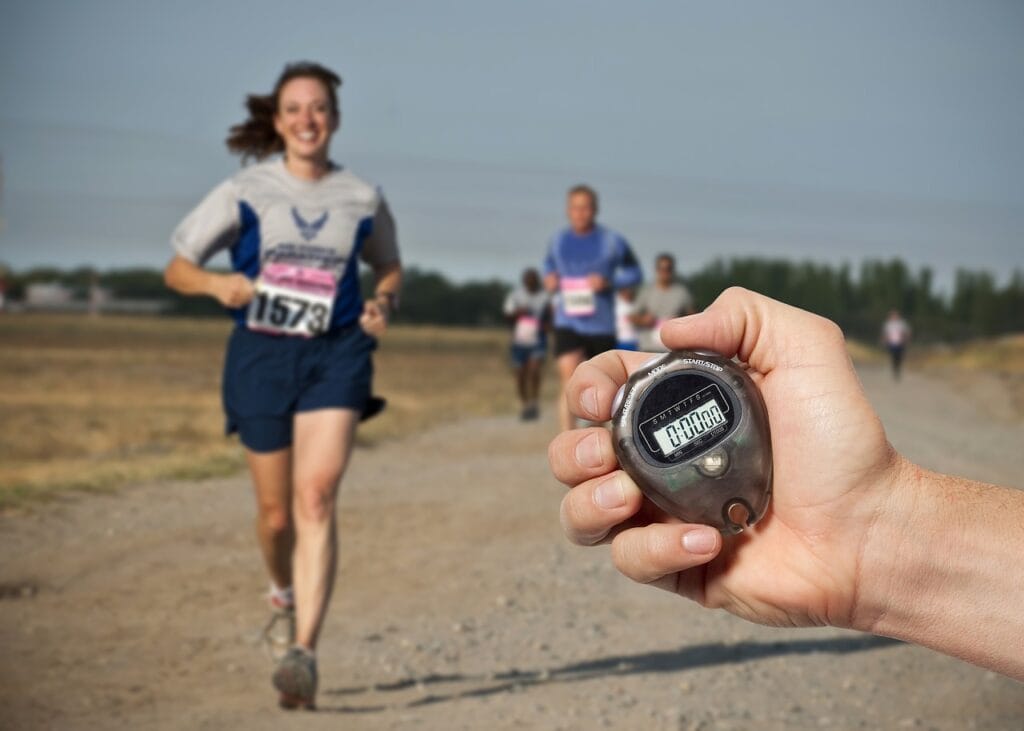The keto diet has gained a lot of attention over the last few years, especially for its ability to help with weight loss and overall health improvement. However, if you’re a runner, you might be asking yourself questions like “Can I run on the keto diet?” or “Is Running on Keto Diet a good idea?” If you’re also wondering, “Can you run a marathon on keto?”—you’ve come to the right place!
In this blog post, we will break down everything you need to know about running on the keto diet in simple language. From the benefits and challenges to tips and personal experiences, you’ll get all the information you need to decide whether the ketogenic lifestyle fits your running goals.
What is the Keto Diet?
The keto diet, short for “ketogenic diet,” is a low-carb, high-fat eating plan that shifts your body’s metabolism into a state of ketosis. This means that instead of using glucose (from carbs) as its primary fuel source, your body begins to burn fat for energy. When you reduce your carbohydrate intake to around 20-50 grams per day, your liver produces ketones, which become your new energy source.
The keto diet usually consists of:
- 70-80% fat (healthy fats like avocado, coconut oil, olive oil)
- 20-25% protein (meat, fish, eggs, etc.)
- 5-10% carbs (non-starchy vegetables, nuts, seeds)
This might sound unusual for runners, who are often told to “carb-load” before big races. But could keto offer a different advantage? Let’s explore how this low-carb plan fits into an active lifestyle.
How Does Keto Work for Runners?
Runners typically rely on carbohydrates as their primary source of energy, especially during endurance activities like marathons or long-distance runs. These carbs are broken down into glucose, which fuels the muscles.
But when you’re on the keto diet, your body doesn’t have access to large amounts of glucose. Instead, it switches to burning fat for fuel. This might sound worrying, but it can actually be a good thing. Since your body has a virtually unlimited supply of fat to tap into, it can keep you going for long periods without needing to refuel as often as you would on a high-carb diet.
However, While Running on Keto Diet, there is an adaptation period. It typically takes about 2-6 weeks for your body to fully adjust to burning fat instead of glucose. During this time, you might feel tired or sluggish on your runs, but once you adapt, many runners report improved endurance.
Can I Run on the Keto Diet?
Yes, you can run on the keto diet! Many runners have successfully transitioned to a keto lifestyle and continued to train and race. However, there are some important things to keep in mind:
- The Adaptation Phase: As mentioned earlier, your body needs time to adapt to using fat as its main energy source. During this phase, your runs may feel harder, and you might not perform at your best.
- Types of Running: While keto seems to work well for endurance running (like marathons or ultra-marathons), it may not be as effective for high-intensity sprints or short races that require quick bursts of energy.
- Hydration and Electrolytes: Keto can lead to a loss of water and electrolytes (like sodium and potassium), so it’s crucial to stay hydrated and replenish these to avoid cramps or fatigue during your runs.
Benefits of Running on the Keto Diet
Running on keto offers several potential benefits, particularly for long-distance runners:
a) Improved Fat Burning
When you’re on keto, your body becomes highly efficient at burning fat. Since fat is a more stable and long-lasting fuel source than carbohydrates, this can lead to better endurance on long runs.
b) Steady Energy Levels
On a carb-based diet, runners often experience energy crashes when their glycogen stores run out. In contrast, runners on keto tend to have more consistent energy levels throughout their run because their body can continuously tap into fat stores.
c) Weight Loss
For runners looking to shed some extra pounds, keto can help by promoting fat loss without sacrificing muscle mass. This weight loss can make running easier, as carrying less weight means less stress on the joints and muscles.
d) Less Dependency on Gels and Energy Drinks
Since keto-adapted runners rely more on fat for fuel, they don’t need to consume as many carb-based energy gels or drinks during their run. This means fewer interruptions and less digestive distress.
Challenges of Running on Keto
While there are many benefits, there are also some challenges associated with running on keto. Here are a few:
a) The “Keto Flu”
When you first start the keto diet, you might experience symptoms like fatigue, headaches, and muscle cramps, known as the “keto flu.” This happens because your body is adjusting to a low-carb intake and needs time to adapt. It can be especially tough on runners who are used to higher carb intake.
b) Reduced Performance (Initially)
During the first few weeks of transitioning to keto, many runners notice a drop in their performance. Your runs might feel harder, and you may not be able to hit your usual pace. This usually improves once your body adjusts, but the initial dip can be frustrating.
c) High-Intensity Workouts
Keto may not be ideal for runners who focus on high-intensity interval training (HIIT) or short-distance sprinting. These types of exercises rely heavily on quick bursts of energy, which are typically fueled by carbohydrates.
Can You Run a Marathon on Keto?
Yes, you can run a marathon on keto! In fact, many ultra-endurance athletes follow the ketogenic diet and find that it helps them with long races. The idea behind keto for marathoners is that once you’re keto-adapted, you can rely on your fat stores for fuel throughout the race, which means you don’t have to worry about “hitting the wall” when your glycogen stores run out.
However, Running on Keto Diet requires careful planning:
- Train While Fat-Adapted: Make sure you’re fully fat-adapted before race day. This usually takes at least 4-6 weeks.
- Hydration and Electrolytes: Pay extra attention to your hydration and electrolyte levels. Many keto runners experience cramps or fatigue if they don’t replenish these properly during long races.
- Fuel Strategically: Although you won’t need as much carb-based fuel during the race, you might still want to incorporate small amounts of carbs, like nuts, during long races.
Keto Diet Tips for Runners
If you’re ready to try running on keto, here are some tips to help you succeed:
a) Ease Into Keto
Don’t make drastic changes overnight. Gradually lower your carb intake while increasing your fat consumption to allow your body to adjust slowly.
b) Increase Your Fat Intake
Make sure you’re getting enough healthy fats. Avocado, coconut oil, fatty fish, and nuts are great sources. This will help your body adjust to using fat as its main energy source.
c) Stay Hydrated
Keto causes your body to lose water more quickly, so it’s essential to stay well-hydrated. Drink plenty of water throughout the day, especially before and after your runs.
d) Replenish Electrolytes
Sodium, potassium, and magnesium are crucial electrolytes that can be depleted on keto. Include foods like leafy greens, avocados, and nuts in your diet, or take electrolyte supplements if needed.
e) Be Patient
The adaptation period can be frustrating, but stick with it! Once you’re fully adapted, your running performance should improve.
What to Eat Before, During, and After Runs on Keto
Before the Run:
- High-fat snacks like nuts, avocado, or a small portion of fatty meat.
- If you’re running a marathon, you might include a small amount of carbs, like a handful of berries.
During the Run:
- Fat-based energy sources like nuts or cheese cubes.
- Hydrate with electrolyte-infused water to maintain energy levels and avoid cramps.
After the Run:
- Protein-rich foods like eggs, chicken, or fish to help with muscle recovery.
- Include healthy fats like olive oil or coconut oil.
YOU MAY ALSO LIKE: Best Home Workout Equipment for Weight Loss
Common Mistakes Runners Make on Keto
- Not eating enough fat: Remember, keto is a high-fat diet. Don’t be afraid of fats—they’re your main energy source!
- Skipping electrolytes: Many runners experience cramps because they’re not replenishing their electrolytes. Don’t make this mistake—focus on getting enough sodium, potassium, and magnesium.
- Quitting too soon: The adaptation phase can be tough, but give your body time to adjust before deciding if keto is right for you.
Is the Keto Diet Right for You as a Runner?
Ultimately, the decision to follow a keto diet as a runner depends on your personal goals and how your body responds to the diet. Keto can be a great option for runners who enjoy long-distance running, want to improve endurance, or are looking for consistent energy levels.
So, can you run on the keto diet? Absolutely! Keto for runners offers many benefits, especially for endurance athletes who need long-lasting energy. While it might not be for everyone, and there is an adjustment period, many runners have successfully incorporated keto into their training and even completed marathons. Just remember to be patient, stay hydrated, and listen to your body as you make the switch!


